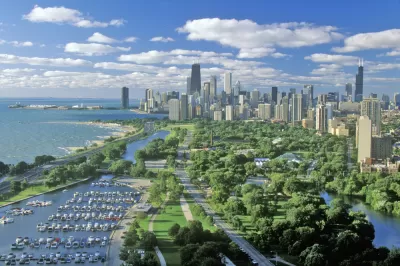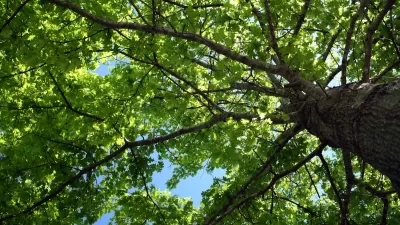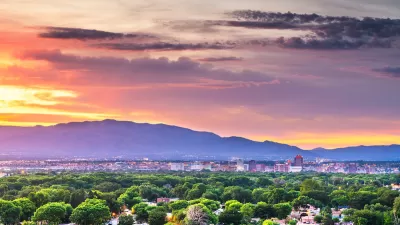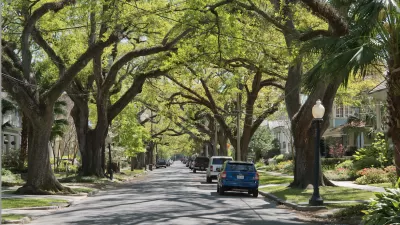Advocates for urban greening are asking the city to boost its tree planting efforts and protect existing trees, which are a key tool for fighting the effects of climate change and worsening heat waves.

In a commentary piece in the Chicago Tribune, Daniella Pereira, vice president of community conservation at Openlands, and Naomi Davis, founder and CEO of Blacks in Green, call on Chicago’s leaders to make a stronger commitment to protecting the city’s tree canopy through comprehensive efforts to preserve existing trees when possible and ensure equitable distribution of resources across the city’s neighborhoods.
It is a disgrace that while $46 million worth of street trees will be planted, our existing healthy and large canopy trees continue to be removed through aldermanic privilege and a Department of Water Management that follows practices contrary to the mayor’s edict. Chicago already has a low tree canopy, and with the removal to planting ratio being 2 to 1, 75,000 trees will not even replace the canopy of what continues to be removed.
Even with tree planting efforts, the authors point out that “Without saving the existing canopy, it will be decades for these young trees to offer the same environmental and health benefits to communities that need them the most now.” The authors claim that “Chicago’s Department of Water Management continues to remove all trees in their way. These trees, the one appreciating asset we have in the city, are then not replaced. In all other cases, when trees are requested to be removed, a forester inspects the tree and, if healthy, denies the request.”
According to Pereira and Davis, “The city needs to have a driver of a strategic urban forestry management plan and a tree canopy goal strategy as a minimum, for each community area.” Furthermore, “That strong vision should be followed by strong tree protection ordinances, policies, interdepartmental communication and public engagement.”
FULL STORY: To fight climate change, Chicago should maintain, strengthen its tree canopy

Alabama: Trump Terminates Settlements for Black Communities Harmed By Raw Sewage
Trump deemed the landmark civil rights agreement “illegal DEI and environmental justice policy.”

Study: Maui’s Plan to Convert Vacation Rentals to Long-Term Housing Could Cause Nearly $1 Billion Economic Loss
The plan would reduce visitor accommodation by 25% resulting in 1,900 jobs lost.

Planetizen Federal Action Tracker
A weekly monitor of how Trump’s orders and actions are impacting planners and planning in America.

Waymo Gets Permission to Map SF’s Market Street
If allowed to operate on the traffic-restricted street, Waymo’s autonomous taxis would have a leg up over ride-hailing competitors — and counter the city’s efforts to grow bike and pedestrian on the thoroughfare.

Parklet Symposium Highlights the Success of Shared Spaces
Parklets got a boost during the Covid-19 pandemic, when the concept was translated to outdoor dining programs that offered restaurants a lifeline during the shutdown.

Federal Homelessness Agency Places Entire Staff on Leave
The U.S. Interagency Council on Homelessness is the only federal agency dedicated to preventing and ending homelessness.
Urban Design for Planners 1: Software Tools
This six-course series explores essential urban design concepts using open source software and equips planners with the tools they need to participate fully in the urban design process.
Planning for Universal Design
Learn the tools for implementing Universal Design in planning regulations.
Caltrans
Smith Gee Studio
Institute for Housing and Urban Development Studies (IHS)
City of Grandview
Harvard GSD Executive Education
Toledo-Lucas County Plan Commissions
Salt Lake City
NYU Wagner Graduate School of Public Service





























